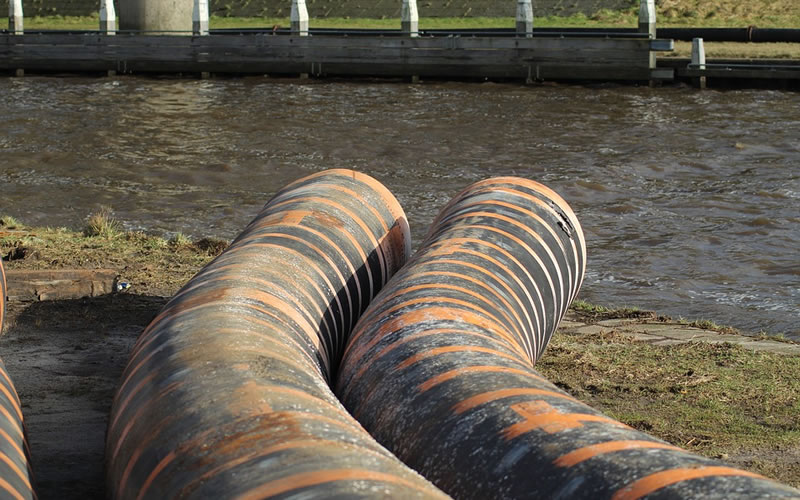- NEWS: House wants income tax reform to conform
- BRIEFS: A look back at the week in the Statehouse
- CALENDAR: House hands off budget to Senate
- TALLY SHEET: Guns, time and restructuring
- TOP FIVE: Tax breaks, jobs, car wrecks, doctor pay and public buildings
- COMMENTARY, Brack: The case against Catherine Templeton
- SPOTLIGHT: Charleston Animal Society
- MY TURN, Armstrong: McMaster signs bill allowing environmental destruction
- FEEDBACK: Three writers say hardship article was on the mark
- MYSTERY PHOTO: Is this really in South Carolina?
- S.C. ENCYCLOPEDIA: Francis Marion National Forest
NEWS: House wants income tax reform to conform

By Lindsay Street, Statehouse correspondent | South Carolina could get its first real shot at income tax reform this session or next after more than a decade of talk, said Speaker Pro Tem Tommy Pope, R-York.
That’s thanks to a little-known, annual adjustment called conformity in which the state’s income tax system income aligns to meet the federal standards. If the state and federal systems don’t conform in multiple areas, some say South Carolina taxpayers might have “an accounting nightmare.”
But conforming to the federal standards also could bring an unintended tax increase, unless the state also adjusts its income brackets, officials said. Work has already begun in the House to conform to the new federal taxable income rates, and the clock is ticking toward an income tax increase that would bring a nearly $200 million windfall for state revenue in 2019.
- Click here to read the state agency report on the potential impact on the federal overhaul on state taxpayers.
State lawmakers on both sides of the aisle are seeking solutions to stop an inadvertent tax increase. Those efforts have coincided with recommendations released last month by a special House tax study committee. Led by Pope, the committee recommended combining five income tax brackets with rates from 3 percent to 7 percent in favor of a single, flat income tax of 4.85 percent.
In a year’s study of the state’s tax system, however, the committee did not consider the conformity issue, especially since a huge federal tax overhaul wasn’t envisioned. And now, some see conformity as a catalyst to flatten and broaden state income tax. But there’s a catch: If legislators decide to make structural changes to the income tax system and they want to be revenue-neutral to the state budget, reformers may also have to cut some income tax exemptions to generate enough money to offset a change to a single bracket.
Pope has taken to calling it “reformity.”
Why conformity matters
Conforming to the federal taxable income means an easier tax return for taxpayers and their accountants. Once you’re done filling out your federal return, conformity allows one to use federal numbers to begin the annual South Carolina return, instead of having to start all over.
It also makes things easier for the state Department of Revenue, according to Ken Newhouse, chair the governmental affairs committee for the South Carolina Association of Certified Public Accountants. In a previous interview with Statehouse Report, Newhouse called conforming “piggybacking off the fed.”

Pope said lawmakers aren’t even considering not passing a conformity bill, which has yet to be filed in either the House or Senate.
“It’s got to happen no matter what. We got to do something or it’s going to be an accounting nightmare,” he said.
As the House catches its breath from passing the budget this week, its Ways and Means Committee is expected to tackle the issue. An exact timeline of when work begins was not available this week, and there are no committee meetings scheduled next week.
‘Reformity’
Tax watchdogs are already raising their hackles. The Palmetto Promise Institute is a conservative-leaning think tank in the state with former U.S. Sen. Jim DeMint on its board. The institute’s president, Ellen E. Weaver, released this statement to Statehouse Report:
“At a bare minimum, state lawmakers should fix this unintended tax increase … In doing so, they can also move our state closer towards the fundamental tax reform our unfair, failing system so desperately needs.”
The special House tax reform committee intends to send a bill to the House Ways and Means Committee by the end of March, Pope said.
“My hope is that would move with conformity,” he said. “We’ve got to deal with conformity anyway, and we’ve got income tax reform ready. Let’s roll them together.”

S.C. Rep. Roger Kirby, D-Florence, also served on the tax committee. He said tax conformity and a corresponding adjustment to keep taxes from rising are nonpartisan issues.
“There will be some serious discussion to make some changes on the income tax side,” he said.
However, Kirby said there is talk about allowing the unintended tax increase to happen without tax reform — but he did not provide information on who wanted to see that happen.
“That’s not going to bode well,” Kirby said. “If the public is aware our inaction has created that sort of windfall for the state, that won’t go over too well.”
Pope called the conformity issue a “sleeping giant,” and Kirby said that with the SCANA-Santee Cooper nuclear debacle and other “fires” that the House has dealt with this session, not many House members have the issue on their radar just yet.
“I don’t think a lot of the body fully understands or appreciates what’s going on there because we haven’t had an opportunity to discuss it as a body,” Kirby said.
Pope said, however, there is a chance tax reform could still bog down.
“The only concern I’ve heard is from the accountants is if you get in a battle about the reform bill as we often do … not letting reform pull down conformity. Pure mechanics: conformity has to happen,” he said.
- Have a comment? Send to: feedback@statehousereport.com.
NEWS BRIEFS: A look back at the week in the Statehouse
The S.C. House wrapped up its budget deliberations in the early morning hours of Wednesday, sending the $8.2 billion spending plan to the Senate. The House then recessed until Tuesday. Here are other items that happened this week:
![]() State agency says you may want to wait to file taxes. The S.C. Department of Revenue said the state still hasn’t conformed to federal income tax guidelines, so state filers may want to postpone or extend filing their taxes. The agency also said you can file your return based on current state law. Click here to read the release.
State agency says you may want to wait to file taxes. The S.C. Department of Revenue said the state still hasn’t conformed to federal income tax guidelines, so state filers may want to postpone or extend filing their taxes. The agency also said you can file your return based on current state law. Click here to read the release.
Election filing opens March 16. Those filing for statewide offices in the 2018 election can file beginning noon March 16.
Children’s advocate bill sent to House. The Senate has given third and final reading to a bill that will create an umbrella agency to act as a watchdog over all child services the state provides. S. 805 now heads to the House.
House mulls electric chair. The Senate passed a bill last week that would make the electric chair the state’s default execution method. Now, it’s up to the House to decide how to move with the bill. Read more here.
‘Sanctuary cities’ targeted. A House Judiciary subcommittee voted 3-2 in favor of a bill that threatens to withhold aid for local governments that don’t comply with state and federal immigration laws. The bill now moves to the full committee.
Wooten to head to Columbia. Lexington County GOP voters have selected Chris Wooten to fill the shoes of former Rep. Rick Quinn. Wooten won a special election primary runoff against his fellow Republican opponent. Wooten is uncontested in the May 1 general election for the seat.
McMaster signs development-friendly law. Gov. Henry McMaster has signed a law that would save time for developers in getting construction projects started by reducing the amount of time the public can challenge permits. Read more here.
Joint-ticket rules finalized in Senate. The Senate has finalized the joint-ticket election rules after five years of debate. The joint ticket is for the voter-approved move of having the governor and lieutenant governor run on the same ticket. Under the bill, gubernatorial nominees must choose a running mate by Aug. 1. The bill heads to the governor for his signature, which he has said it would get.
— Lindsay Street, Statehouse correspondent
CALENDARCALENDAR: House hands off budget to Senate
The state’s budget has passed the S,C, House and is now in the hands of the state Senate. Many of Senate’s committee and subcommittee hearings will be focused on provisos, or special spending provisions, in the budget. Gov. Henry McMaster is hoping for the body to find money for school resource officers for schools around the state. Also next week:
![]() End of spoof marketing calls. The House has scheduled third reading of a bill that would prohibit telemarketers from using a spoofed local telephone number to call consumers. That reading could come during Tuesday’s session, which begins at noon.
End of spoof marketing calls. The House has scheduled third reading of a bill that would prohibit telemarketers from using a spoofed local telephone number to call consumers. That reading could come during Tuesday’s session, which begins at noon.
Surface water withdrawals. A House committee will look at legislation that would require permits for withdrawal of surface water for agricultural purposes in the state. The Agriculture, Natural Resources and Environmental Affairs Committee meets 8:30 a.m. Thursday in room 410 of the Blatt building.
Top school chief by gubernatorial appointment. House members of the Judiciary Committee will look at Senate bill S. 27 after its Constitutional Laws Subcommittee gave it a favorable vote. The bill aims to switch the state Superintendent of Education position from being an elected position into an appointed one. The committee meets 2:30 p.m. Tuesday in room 516 of the Blatt building. Read the agenda here.
Expanding mandatory reporters. The Senate’s General Committee meets 9 a.m. Wednesday in room 209 in the Gressette building. On the agenda is a bill that would expand the state’s mandatory reporters of child abuse or neglect to religious counselors, school administrators, coaches and camp leaders. Read the agenda here.
Mobile barber shops. A Senate subcommittee is looking at legislation that would allow mobile barber shops in the state. The Professions & Occupations Subcommittee of the Senate Labor, Commerce and Industry Committee meets after the Senate adjourns Tuesday in room 307 in the Gressette building.
— Lindsay Street, Statehouse correspondent
TALLY SHEETTALLY SHEET: Guns, time and restructuring
Staff reports | Lawmakers filed only two dozen bills this week, but what they lost in bulk, they gained in substance as GOP Sen. Greg Gregory of Lancaster introducing a major bill calling for the tightening of some of the state’s permissiveness for guns.
![]() S, 1118 was introduced Wednesday — the same day that thousands of students walked out of classes to honor victims of the Parkland school shooting in Florida. The proposal seeks to ban bump stocks for guns and provide penalties; to ban purchase of rifles or shotguns by people younger than 21; prohibit sale of high-capacity magazines for guns; and other gun reform measures.
S, 1118 was introduced Wednesday — the same day that thousands of students walked out of classes to honor victims of the Parkland school shooting in Florida. The proposal seeks to ban bump stocks for guns and provide penalties; to ban purchase of rifles or shotguns by people younger than 21; prohibit sale of high-capacity magazines for guns; and other gun reform measures.
Also this week, House members, embroiled in budget debate on the floor, introduced just three bills, all memorial resolutions. Also of note in the Senate:
Daylight Saving Time. S. 1110 (Peeler) seeks to have Daylight Saving Time to be the year-round standard time in South Carolina if Congress changes the time law.
Shorter session. S. 1112 (Jackson) seeks to make the annual legislative session end by the second Thursday of April instead of the second Thursday of May.
Greenville Health. S. 1116 (Timmons) seeks to change the Greenville Health System to the Greenville Health Authority with several provisions related to governance and more.
Lieutenant governor restructuring. S. 1120 (Campsen) seeks to restructure rules related to the lieutenant governor’s function, most notably to make the job sync with how the lieutenant governor runs now on a joint ticket with the governor, and to make administrative changes to the Office on Aging.
LIFE scholarships. S. 1123 (Hembree) seeks to make changes to the LIFE scholarship, including allowing an annual book allowance; amending stipend rules; increasing grade requirements to keep it; and more.
Utility discovery. S. 1128 (Rankin) seeks to allow the head of the Office of Regulatory Staff to file a lawsuit in state court requiring documents or witnesses related to the V.C. Summer nuclear plant disaster, with many provisions.
- Find all bills.
- Have a comment? Send to: feedback@statehousereport.com.
TOP FIVE: Tax breaks, jobs, car wrecks, doctor pay and public buildings

By Lindsay Street, Statehouse correspondent | Our weekly Top Five feature offers big stories or views from the past week or so with policy and legislative implications that you need to read because of how they could impact South Carolina.
This week, you’ll find stories and data about how local governments in South Carolina provide tax breaks to businesses and how billions of dollars are needed to fix public buildings. If you have stories to suggest to our readers, send to: feedback@statehousereport.com.
- Local governments give hundreds of millions in tax breaks to businesses, The State, March 10, 2018.
For the first time, many local governments — cities, counties and school districts — have released the tax credits they have offered to businesses for locating there. Of the state’s 46 counties, 33 have filed financial reports with the state. The total is $221 million in tax breaks given to lure corporations to a local area — a number that doesn’t include the big breaks given by the state. Some characterize these breaks as corporate subsidies while others say they are job-creating necessities to help corporations avoid the state’s 10.5 percent property tax rate. An excerpt:
“Kershaw County, including its school district, reported giving tax breaks worth almost $6 million in the fiscal year that ended June 30, 2017. The county school district’s property tax revenues were reduced by $4.2 million under incentives approved by Kershaw County, according to its 2017 financial report. That has strained budgeting for the school district of about 10,500 students as new industries have brought new residents, who have new students.”
- Billions needed to repair public buildings around state, The Post and Courier, March 10, 2018.
This week, the S.C. House debated and passed an $8 billion spending plan that included about $70 million for building repairs and upgrades, mostly at public colleges. But more than $2 billion is needed to bring all public buildings up to standard, according to estimates. An excerpt:
“More than $2 billion agencies (was) requested last year for maintenance and renovations of public buildings statewide, including at college campuses, health facilities, state law enforcement buildings, courtrooms, prisons and museums. They’re where residents work, play and get help. The tally does not include K-12 schools, which were evaluated separately for a report with no cost estimates.”
- Charleston-area female doctors have worst pay divergence in nation, CNN, March 14, 2018.
A new survey shows women doctors earned an average nearly one-third less than their male peers — or an average of $105,000 less per year — despite women having the same education and work experience. The survey said that among major metro areas, the discrepancy is at its worst in Charleston:
“The gender pay gap was most pronounced in Charleston, S.C. , where women doctors earned 37%, or $134,499, less than male doctors, last year. That was followed by Kansas City, Mo., where the gap was 32%, or $131,996. The report did not explain why the disparity was more glaring in these cities.”
- More jobs available, but unemployment ticks up in S.C., South Carolina Radio Network, March 12, 2018.
There are 2.1 million jobs in South Carolina, according to the S.C. Department of Workforce and Employment’s latest jobs report for January. Of those jobs, 61,100 are available — many in the manufacturing sector, according to the agency’s spokesman. The state’s jobless population is at 100,178. And while more than 460 people found work in January, an additional 2,300 were added to the unemployment line. DEW spokesman Bob Bouyea told the radio station:
“We’re in a really good time in South Carolina … We are seeing our companies here just add jobs. Our job is to help them find their next worker.”
- Hundreds of fraudulent car wrecks plague state, The Post and Courier, March 10, 2018.
South Carolina ranks seventh in the nation for having a large number of fraudulent or staged car wrecks where perpetrators are trying to obtain insurance money. The National Insurance Crime Bureau reported that the state had 546 fraudulent car wrecks from 2012 to 2014 — and that number is rising. An excerpt:
“Last year, four full-time State Law Enforcement Division agents were assigned to investigate insurance fraud, which was double the number from the previous year. But the South Carolina insurance fraud unit budget of $354,000 pales in comparison to North Carolina and Virginia with budgets of $2.8 million and $5.3 million, respectively.”
- Have a comment? Send to: feedback@statehousereport.com.
BRACK: The case against Catherine Templeton

By Andy Brack, editor and publisher | Just as a burglar might throw drug-laced meat to a vicious guard dog to make it go to sleep, Republican gubernatorial hopeful Catherine Templeton is using every trick she can to lull voters that she’s right for the state’s top job.
 She’s not. She’s a political burglar. And she’s dangerous.
She’s not. She’s a political burglar. And she’s dangerous.
Templeton doesn’t have the temperament, experience, tact or moral compass to lead South Carolina to better times. After months of campaigning, she seems to want to lead South Carolina backwards to a time that embraced racism and the plantation.
Brad Warthen, The State’s former editorial page editor who currently blogs about politics at bradwarthen.com, says Templeton is wearing her inexperience as an elected official as a badge of honor, just like Donald Trump has, “which is the worst of reasons, since the man demonstrates every day how important qualifications actually are.”
Warthen said he’s appalled because he doubts Templeton is as clueless as Trump.

“She seems to be an intelligent woman,” he observed. “She’s not a moron, but is willing to play one on TV to get elected. Which implies that if elected, she’d be willing to govern like a moron. When she knows better.
“A person who stoops to conquer makes for an unseemly spectacle. In her case, she’s stooping so low it’s hard to see how she gets back up.”
Just look at what Templeton has been up to. You’ll find a consistent pattern of pandering and a questionable record of leadership:
Courageous on labor? The Mount Pleasant lawyer who was in charge of the state agency that regulates labor frequently lauds her service as a union-hater. Frankly, how courageous is that in the state with the nation’s lowest rate of unionization?
Desperately seeking Trump. Templeton proudly introduced former Trump adviser Steve Bannon at a Charleston rally in November, calling him a friend who is “the voice of the rest of us.” Just this month, Bannon told a far-right audience in France how to deal with accusations of racism: “Let them call you racists. Let them call you xenophobes. Let them call you nativists. Wear it as a badge of honor.”
Confederates in the attic. In a February talk about her state heritage and family’s Confederate roots, Templeton said “my family didn’t fight because we had slaves.” Rather, she said, the family fought because “the federal government was trying to tell us how to live.” Later a newspaper reported that Templeton, who has crowed she is “proud of the Confederacy,” said she didn’t know her family owned slaves. All of this is pure sanctimony. It mixes modern politics (current GOP talking points about the federal government) with history. Why should a war of 150 years ago even be in a speech these days? This kind of mess has no place in a political campaign in 2018.
Stunts. Templeton used a power saw to open campaign offices in February. Really? She also said she wouldn’t watch the Super Bowl – but she did trumpet a web ad to express dissatisfaction with the NFL. A candidate who relies on stunts may be a clown in office.
Veracity questioned. Templeton claimed in 2017 she was fired from a senior position at the S.C. Ports Authority for being a whistleblower. But the agency’s director, Jim Newsome, has said that isn’t true. ““Ms. Templeton seeks to paint herself as a victim, but this could not be further from the truth and seems to be merely an election campaign ploy fraught with inaccuracies,” he said.
Slow response. In 2013 as head of the state’s health agency, Templeton apologized for a slow agency response in dealing with a tuberculosis outbreak that infected more than 100 people in Greenwood County. According to news reports, the agency learned about an infected man in March, but didn’t test schoolchildren, 53 of whom got the illness, until the end of May.
There are plenty of accomplished, experienced women in South Carolina who should think about running for governor: State Sens. Katrina Shealy, R-Lexington; Mia McLeod, D-Richland; state Reps. Mandy Powers Norrell, D-Lancaster, and Phyllis Henderson, R-Greenville; and state Superintendent Molly Spearman. Catherine Templeton doesn’t make the cut.
- Have a comment? Send to: feedback@statehousereport.com.
SPOTLIGHT: Charleston Animal Society
 We’re pleased today to shine our spotlight on a new underwriter, Charleston Animal Society, leader in the effort to make Charleston County a safe place for animals. Now the society is working to expand its Charleston success statewide to energize the state to reshape its 300-plus shelters and animal organizations into a no-kill network that stretches from Walhalla to Little River to Daufuskie Island.
We’re pleased today to shine our spotlight on a new underwriter, Charleston Animal Society, leader in the effort to make Charleston County a safe place for animals. Now the society is working to expand its Charleston success statewide to energize the state to reshape its 300-plus shelters and animal organizations into a no-kill network that stretches from Walhalla to Little River to Daufuskie Island.
Safe and healthy communities, neighborhoods and families don’t just happen – they’re built. “No Kill – No Harm – No More” shines a spotlight on animal abuse and family violence, which are often perceived and treated as separate issues. However, animal abuse is often the tip of the iceberg to larger issues in the home, such as child abuse, elder abuse or domestic violence.
- South Carolina’s most honored charity four years in a row
- National model for success
- Southeast’s only AAHA-accredited combined clinic and shelter
- Focused on solving problems rather than reacting to them year after year
- Publishes Carolina Tails, the largest pet magazine in S.C.
- No Kill. No Harm. No More. is a “movement” comprised of two major initiatives: No Kill Charleston and No Kill South Carolina.
- Learn moreabout the Charleston Animal Society and its work to create a network of humane network for the animals that bring joy to our lives.
ARMSTRONG: McMaster signs bill allowing environmental destruction

By Amy E. Armstrong, special to Statehouse Report | Gov. Henry McMaster this week signed into law Senate Bill S.105, which eliminates existing protections for air, water, wetlands and wildlife habitats. Prior to the bill, an “automatic stay” put on hold agency decisions that would allow environmental degradation until a judge determined whether the degradation was lawful. The new law gives an environmental permit applicant the ability to proceed with a destructive and polluting project before that lawfulness determination is made.

For years, the automatic stay law has been used by environmental advocacy groups to protect South Carolina’s natural resources. For example, the law was used in a challenge of a high-density development on the 42 acres surrounding the Angel Oak on Johns Island, which would have allowed trees to be cut down, wetlands to be filled, and polluted stormwater to drain into the adjacent Church Creek. As a result of the challenge filed by the South Carolina Environmental Law Project (SCELP), the automatic stay was used to prevent that degradation and ensure permanent protection for the Angel Oak and its environment. SCELP has also used the automatic stay to protect Captain Sams Spit from an ill-advised development proposal on this dynamic and undeveloped 150-acre barrier island spit.
The automatic stay was previously weakened to allow projects to proceed upon a showing of either good cause or that no environmental degradation would occur. This important law has now been effectively eliminated. Citizens and environmental groups seeking to protect themselves and their communities are without meaningful recourse for DHEC-issued environmental permits.
Projects which cause environmental degradation can now proceed, even though they may be illegal. Importantly, the new law signed by McMaster eliminates citizens’ constitutional due process rights to a hearing before their rights are affected. The legislature has effectively given a free pass to development on Captain Sams Spit, sprawling suburban developments in wetlands, a new landfill to haul in out-of-state garbage and the mining companies that want to move in next door. South Carolina’s citizens no longer have an effective voice or level playing field against those who seek profit at the expense of the environment.
Amy E. Armstrong is executive director and general counsel of the S.C. Environmental Law Project which protects the natural environment of South Carolina by providing legal services and advice to environmental organizations and concerned citizens and by improving the state’s system of environmental regulation.
- Have a comment? Send it to: feedback@statehousereport.com.
FEEDBACK: Three writers say hardship article was on the mark
To the editor:
You just described what my mother, born in 1921, instilled in me – to not forget where we came from.
My grandfather was a tenant farmer and my grandmother went to work at the textile mill in Ware Shoals to save up money to buy them their own farm and send my mother to Winthrop. That broke the string of poverty in my family, helped me get a bachelor’s degree and a master’s degree from Clemson.
Now the hard part– how to convey all of this to our children and their children who can’t comprehend the things in your article and take for granted everything we have today.
— Fred Gassaway, Summerville, S.C.
To the editor:
Excellent article. This was also true of my grandparents in the coal mining towns of Pennsylvania.
— Andrea Hoerner, Bluffton, S.C.
To the editor:
I enjoyed your commentary “Hardship made the South what it is today.”
Both of my parents grew up in the rural South and worked hard their entire lives. I agree that a hard, rural life contributes to many a Southerner’s skepticism.
I think there are at least two other influences that should be mentioned. The myths that continue to be perpetuated about the Civil War ignore reality and contribute to our narrow-mindedness. The other negative influence on communities throughout America is our reliance on Fox News for our primary news source. According to Adweek, Fox News is the most-watched cable news network year after year. Fox’s commentators, such as Sean Hannity and Tucker Carlson, seem to revel in and contribute to the fear pushed by Donald Trump. I don’t watch Fox because I don’t trust them but sadly, many of my family members do.
Thank you for Statehouse Report.
— Joe Whetstone, Beaufort, S.C.
- Have something to say? Send 200 words or less to feedback@statehousereport.com
MYSTERY PHOTO: Is this in South Carolina?

Yes, it is in South Carolina, but this building easily could be located in any number of places in Europe. Where is it? Send your best guess – plus your name and hometown to feedback@statehousereport.com. In the subject line, write: “Mystery Photo guess.”
Last week’s mystery
 Loyal reader Barry Wingard of Florence sent in a Mystery Photo showing house ruins that we published on March 9. It was a tough one – a photo that showed ruins of a big house at Sams Plantation on Dataw island.
Loyal reader Barry Wingard of Florence sent in a Mystery Photo showing house ruins that we published on March 9. It was a tough one – a photo that showed ruins of a big house at Sams Plantation on Dataw island.
Congratulations to the three readers who correctly identified the tabby ruins: George Graf of Palmyra, Va.; Marvin Mitchum of Moncks Corner; and Philip Cromer of Beaufort, who noted that his wife’s ancestors “built the plantation and his son, Dr. Berners Barnwell Sams, added the wings.”
Graf added: “According to tabbyruins.com, William Sams purchased Dataw Island in 1783 and began construction of a tabby plantation devoted to sea island cotton. His son, B. B. Sams, inherited the plantation in 1808 and expanded it to include approximately 15 tabby buildings. Not only was this a large plantation that included its own chapel and cemetery, but it was also unusual in that nearly all the structures were built of tabby. Sams died in 1855, and the federal government took over the island in 1863 because of overdue taxes. A fire destroyed the plantation in 1876.”
Send us a mystery: If you have a photo that you believe will stump readers, send it along (but make sure to tell us what it is because it may stump us too!) Send to: feedback@statehousereport.com and mark it as a photo submission. Thanks.
S.C. ENCYCLOPEDIAHISTORY: Francis Marion National Forest

S.C. Encyclopedia | Located in the coastal plain of Berkeley and Charleston Counties, the Francis Marion National Forest (FMNF) is composed of more than 250,000 acres of natural area, which was designated a national forest in 1936 by President Franklin Roosevelt. Much of the value of the forest lies in the biodiversity and natural communities found there.
The Berkeley/Charleston County area is home to more than fourteen hundred species of plants, or approximately forty-five percent of the total number of plant species found in South Carolina. Among these are fifteen species of insectivorous (bug-eating) plants. The forest contains an exceptional diversity of animal species as well. More than three hundred species of bird have been observed within the forest, including such rarities as swallow-tailed kites and wood storks. The forest is composed of a wide variety of natural habitats, including coastal marshes, maritime forests, swamp forests, hardwood forests, and longleaf pine flat-woods and savannas. Twenty-five large, well-developed Carolina bays are also found within the forest boundaries, providing critical habitats for many rare and unusual species.
The natural areas of the FMNF are home to numerous rare and endangered plant species, including American chaffseed, Canby’s dropwort, and pondberry. The large expanses of longleaf pine forests here also provide habitat for the federally endangered red-cockaded woodpecker. This bird, like many other plants and animals found here, is dependent on periodic low-intensity ground fires to keep the pinelands open and prevent invasion by hardwood species. Fire is the most important management tool used in the FMNF.
The FMNF provides miles of hiking trails with nine major trails, including the Swamp Fox trail that crosses most of the natural communities found in the forest. Trails are also provided for equestrian use. Game species abound on the forest and provide ample opportunity for hunting and fishing. Canoe and kayak enthusiasts will find many miles of quiet trails on black-water and tidal areas of Wambaw, Wadboo, Echaw, French Quarter, and Huger Creeks. Four wilderness areas provide more than thirteen thousand acres of unmanaged land for the adventurous explorer.
— Excerpted from an entry by Patrick McMillan. To read more about this or 2,000 other entries about South Carolina, check out The South Carolina Encyclopedia, published in 2006 by USC Press. (Information used by permission.)
ABOUT STATEHOUSE REPORT
Statehouse Report, founded in 2001 as a weekly legislative forecast that informs readers about what is going to happen in South Carolina politics and policy, is provided to you at no charge every Friday.
- Editor and publisher: Andy Brack, 843.670.3996
- Statehouse correspondent: Lindsay Street
More
- Mailing address: Send inquiries by mail to: P.O. Box 22261, Charleston, SC 29407
- Subscriptions are free: Click to subscribe.
- We hope you’ll keep receiving the great news and information from Statehouse Report, but if you need to unsubscribe, go to the bottom of the weekly email issue and follow the instructions.
© 2018, Statehouse Report. All rights reserved.















 We Can Do Better, South Carolina!
We Can Do Better, South Carolina!